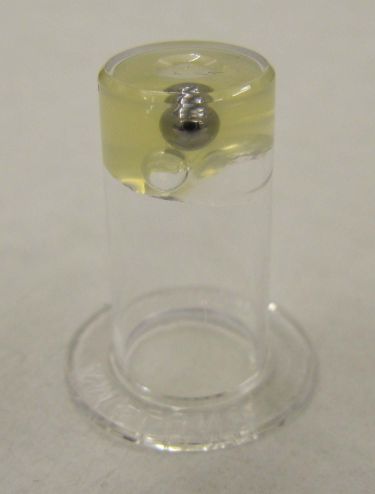Agian
Well-known member
Heads will roll.

I assume you're referring to our wannabe king.Heads will roll.
never thought of it, but yes, of course it is.... - systolic and diastolic are "flipped" between the aortic and mitral valve.
care to share that? Because:Leadville - I just found that paper that equated INR to viscosity -- and I was kind of amazed, too. But it helps to explain why they call anticoagulants Blood Thinners.
err ... this is happening during coagulation, so of course it gets thicker ... as the coagulation occurs, this is not something which happens between blood that has not begun coagulation and I'll be surprised if there is any reported viscosity difference between blood from people NOT on AC Therapy and those on AC Therapy....I saw some papers about the way that they tested INR years ago - and a few methods used tiny magnetic pieces in the reagent,





"we've" known about this for quite some time ... before valve surgery really(It's not like we now know - that anticoagulants make it take longer for blood to clot - it's an assumption that the blood's viscosity was lower, so it took longer to form a clot than it does for 'normal' blood).
did you just change your avatar?Poor science, it's maybe how the 'Urban myth' started eh ?
did you just change your avatar?
I swear it had a dog there before ... I've just come back into work (different PC) ... perplexingErm no ? too many red wines Pell ?
I swear it had a dog there before ... I've just come back into work (different PC) ... perplexing
It did have a dog there before PellicleI swear it had a dog there before ... I've just come back into work (different PC) ... perplexing
I swear it had a dog there before ... I've just come back into work (different PC) ... perplexing
right ... so NOW I'm having a scotch ... thanks for that PaulIt did have a dog there before Pellicle
Even Aspirin is considered a blood thinner. Check it out. Hugs for today.Someone, somewhere, decided that this was what anticoagulants do.
He (probably) was also looking for terminology that people could sort of understand. 'Blood Thinner' is easier to understand (and spell) than anticoagulant.
I'm not sure how many people (other than those on this forum, and perhaps a few doctors who know what anticoagulants actually do) who chafe at the misuse of the term to describe what anticoagulants actually do..
Yes. It's bad science. But, unfortunately, the term is stickier than blood without platelets.